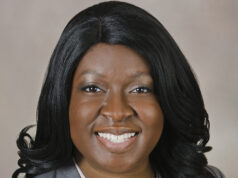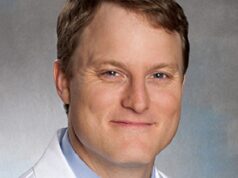
A new therapy of hydration and oncotic pressure of plasma helped 100% of certain elderly peripheral artery disease (PAD) patients in terms of pain, ankle-brachial index (ABI), and walking time, endovascular pioneer Juan C Parodi told the SVS ONLINE audience this week.
Moreover, six months later, patients continued to improve significantly.
Parodi, who was delivering this year’s International Lecture as part of SVS ONLINE, is the 2020 recipient of the Society for Vascular Surgery (SVS) International Lifetime Achievement Award. He was introduced by Enrico Ascher (NYU Langone Health, New York, USA), chair of the International Relations Committee. After receiving nominations from vascular societies from around the world, “one surgeon surpassed all expectations,” explained Ascher.
“He is a prolific surgeon-scientist, a successful inventor, a superb technical surgeon, a man who fought for the poor and for equal education for all,” continued Ascher of Parodi. And in 2006, said Ascher, he was honoured to present to Parodi the very first SVS Medal of Innovation.
Parodi and his fellow researchers were inspired to devise a prospective trial after considering two PAD patients, for whom the common factor was dehydration; both experienced “a significant improvement of symptoms after proper hydration in less than 48 hours”.
He and fellow researchers assembled a trial group of 132 adult patients with disabling claudication or rest pain who failed to improve after five months of complete medical treatment. The treatment continued, with the exception of discontinuing diuretics and Cilostazol. Patients were administered 2.5 litres of fluid and 0.6 grams of albumin (egg white and albumin powder) every 24 hours.
The 131 patients who complied with the therapy realised “significant” improvements, including increases in skin temperature in the feet, walking time and distance to claudication and in ABI, as well as a decrease in pain, said Parodi. Subsequently increasing the albumin concentration to 4 grams prompted a secondary positive change.
In addition to other positive results, said Parodi, “in the last 12 months, our cases of angioplasty and/or stenting dropped dramatically,” by almost 90%.
He called the therapy perhaps the “most important to the whole conservative approach to treatment” and suggested vascular surgeons try it before more invasive treatments. “We never expected to have this kind of response,” he told panel moderators. “Sometimes this looks like a miracle.”
Provider or family involvement to assure compliance is crucial, he added.
Parodi said one of his original patients, aged 74, who had had several surgical and endovascular attempts to treat a severe ischaemia of the left lower extremity, completed the therapy. The patient later sent Parodi a picture of himself on top of a mountain, water bottle in hand. He had walked “4 kilometres without pain,” was taking no medication but still following the protocol. “We never imagined this,” Parodi said.
Another patient who had had invasive treatment on one leg successfully completed the protocol and did not require invasive treatments on the other leg. “We are saving suffering for the patient. We are saving money,” said Parodi. “Probably we were doing too many (treatments) and too much.”
Panellists called the therapy “significant” and “important.” Parodi pointed out trial limitations in the patient numbers, the fact there was no control group and the short follow-up period.
Parodi is known for conceiving the concept of endovascular repair (EVAR) of abdominal aortic aneurysms (AAAs). In 1990, he received a call from Argentina President Carlos Menem regarding his cousin, deemed too sick for open repair. Parodi performed the treatment (he had never done so on a human) and “it turned out to be a resounding success,” said Ascher. The American College of Surgeons said “Parodi’s success with EVAR literally changed vascular surgery.”
Frank Veith (New York University Medical Center NY, New York, USA) invited Parodi to New York to operate there, which “sparked the endovascular revolution and significantly extended the reach of our specialty,” said Ascher.
In 1993, President Menem suffered his own health issues, a potentially fatal blood clot. Parodi operated to clear the right carotid artery successfully and without complications.
And years earlier, in 1980, Parodi removed a gangrenous gall bladder from a poor priest, refusing payment. Thirty-four years later, Parodi received an invitation to visit the Vatican to see that priest, now Pope Francis, and be thanked.
Parodi also invented other procedures, devices and treatments. “He saved a sitting president, he saved a (future) pope,” Ascher said of Parodi. “He has saved hundreds of thousands of lives with his innovative approaches and, ladies and gentlemen, he saved our specialty.”
Parodi, an honorary SVS member, is chief of vascular surgery at Trinidad Hospital in Buenos Aires, honorary professor of surgery at Universidad de Buenos Aires, and professor of research at the University of Michigan.
Following the presentation, panelist Matthew Eagleton (Massachusetts General Hospital, Boston, USA) jokingly asked Parodi if he garnered “special influence” with his patients because he had treated the Pope.
“He prays for me every day,” Parodi responded, “and I need it because I am a sinner.”












